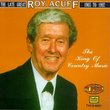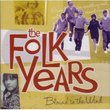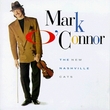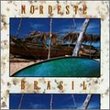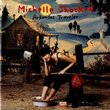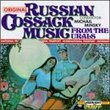| All Artists: Freddie Hubbard Title: Ready for Freddie Members Wishing: 0 Total Copies: 0 Label: Capitol Release Date: 7/18/1995 Genre: Jazz Style: Bebop Number of Discs: 1 SwapaCD Credits: 1 UPC: 724383209422 |
Search - Freddie Hubbard :: Ready for Freddie
 | Freddie Hubbard Ready for Freddie Genre: Jazz Japanese pressing includes two bonus tracks. EMI. 2008. |
CD DetailsSynopsis
Album Description Japanese pressing includes two bonus tracks. EMI. 2008. Similarly Requested CDs
|
CD ReviewsPerhaps Freddie's best Blue Note session Douglas Gray | Rochester, NY | 03/12/2000 (5 out of 5 stars) "This almost-impossible-to-find fourth album in a series of eleven recorded for Blue Note between 1960 and 1966 featuring Freddie Hubbard as a leader is arguably his best of the Blue Note era. After three previous issues (also hard to find) which matched Freddie with the likes of Paul Chambers and Philly Joe Jones of Miles' camp, Hank Mobley, McCoy Tyner (piano), Julian Priester and Jimmy Heath, this was his first of his many Blue Note sessions with the emerging forces of Wayne Shorter (tenor sax), Art Davis (bass) and Elvin Jones (drums). Bernard McKinney (euphonium) is added for depth of harmony during the heads, which he provides nicely, yet his improvisational efforts did nothing to add to the luster of this album.At a mere 23 years of age, Freddie displays an early maturity that is mysteriously absent from many of his later recordings. He is solid, confident and purposeful here, and shows leadership quality, whereas in subsequent sessions with many of the same personnel, he often digs holes from which he cannot cleanly escape. This session is solid jazz, without any of Freddie's gimmicky antics or space-filling high-note blowing. Conversely, despite the famed careers of his esteemed sidemen, none of them are at their very best, with the possible exception of Art Davis.The quality of the recording is questionable. There's a scratchy microphone, perhaps on Elvin's cymbals, which is sometimes irritating. Nevertheless, the balance is pretty good, and Art cuts through clearly - a rare event for a bassist in these early Blue Notes.Arietis - A smart, warmly harmonious and upbeat swing original by Freddie, who takes honors and delivers a strong, well-constructed and well-phrased solo behind the anxious provocation of McCoy, Art and Elvin. Wayne follows with a solid, yet less mature improvisation. Bernie is next with a relatively weak display. McCoy finishes with a short, unimaginative solo. Art and Elvin have a powerful background presence.Weaver Of Dreams - A ballad standard, warmly and richly interpreted by Freddie. The pace picks up for Freddie's ensuing solo, which is nice, but not too emotional. McCoy makes due with a risk-free improvisation of his own.Marie Antoinette - An early, yet pleasant medium swing piece by Wayne, who starts off the solos with a nice effort suggestive of his early Coltrane influence. Freddie's next with another well-conceived solo. Bernie struggles through the next 32 bars, then its McCoy, taking it easy once again. Art closes with a fine solo, demonstrating his rich sound and mature technique.Birdlike - A Freddie original and appropriately named bebop number. Freddie appears very comfortable in these surroundings and blows an extended solo which shows a strong Miles influence, the likes of which I've never heard from Freddie. Wayne follows with a somewhat rough, yet unmistakably Wayne solo. Bernie's solo is again amateurish, yet survivable. McCoy shows a bit more energy this time, but keeps it in the mainstream. Art delivers a strong cleanup, then out.Crisis - A popular and often-played Freddie original which alternates between a dark, straight 4/4 thing, contrasted with a more powerful, optimistic swing feel. Again, Freddie shows great comfort and confidence playing over chord changes of his own design and provides a fine solo. Next up is Wayne, who really shows his guts here, as well as a look into the future of one the sixties' preeminent tenormen. I only wish it lasted a bit longer. I wish Bernie's was a bit shorter. McCoy's follow stays on the surface, and Elvin takes us home with a witty, yet not very dramatic solo.Arietis (alternate take) - This take has more energy than the first, and contains perhaps the best improvisations of each player of the session. How the original take was chosen over this one, I'll never know. I found this newly-released gem to be the highlight of the album.Marie Antoinette (alternate take) - Less memorable than the original, as Wayne is not as strong.This is a wonderful and very listenable album with no faults, excepting the improvisations of Bernard McKinney. It is quite representative of the Blue Note "sound" of the era. I want to give it 4-1/2 stars overall, but I can't, so I'm giving it 5, primarily due to some of the best work I've ever heard from Freddie. If you can find it, buy it. I couldn't find the CD anywhere, until I stumbled upon it at the library. Lucky me."
|


